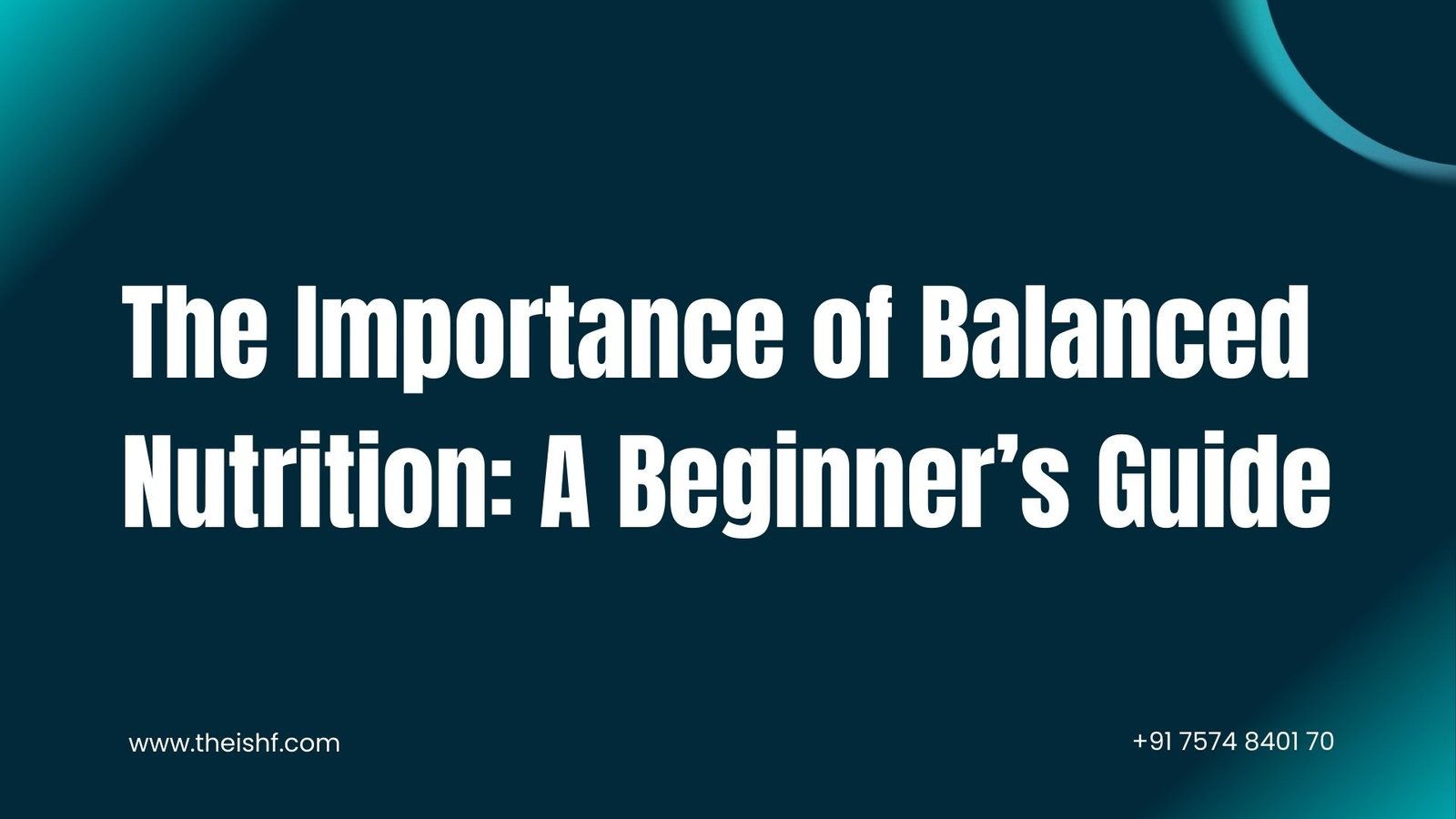In today’s fast-paced world, maintaining a balanced diet can often feel like a daunting task. With so many diet trends and conflicting health advice, it’s easy to feel overwhelmed. But at the core of good health is balanced nutrition, a concept that is essential for anyone looking to improve their lifestyle, energy levels, and overall well-being.
In this beginner’s guide, we will break down what balanced nutrition is, why it’s crucial, and how you can incorporate it into your daily life for a healthier future.
What is Balanced Nutrition?
Balanced nutrition means providing your body with all the essential nutrients it needs to function effectively. These nutrients include macronutrients (proteins, carbohydrates, and fats) and micronutrients (vitamins and minerals). A balanced diet helps support overall health, reduces the risk of chronic diseases, and aids in maintaining a healthy weight.
A balanced diet consists of:
- Proteins: Essential for building muscles, tissues, and cells. Sources include meat, eggs, legumes, and nuts.
- Carbohydrates: Provide energy for your body’s daily functions. Choose complex carbs like whole grains, fruits, and vegetables over refined sugars.
- Fats: Healthy fats like those found in avocados, nuts, and olive oil are vital for brain function and energy.
- Vitamins and Minerals: These micronutrients play an essential role in maintaining bodily functions and preventing deficiencies. They are found in a variety of fruits, vegetables, and whole foods.
Why is Balanced Nutrition Important?
- Maintains Energy Levels:
- Your body needs fuel, and balanced nutrition ensures you have a steady supply of energy throughout the day. Carbohydrates and healthy fats provide the long-lasting energy your body needs for physical and mental activities.
- Supports Growth and Repair:
- Protein, along with other nutrients, helps build and repair tissues and muscles. For active individuals or those looking to build muscle, protein is key to recovery and progress.
- Boosts Immune System:
- A balanced diet rich in vitamins, minerals, and antioxidants supports the immune system, helping your body fight off infections and diseases.
- Improves Mental Health:
- Nutrients like omega-3 fatty acids, found in fish, and complex carbohydrates can improve mood, cognition, and mental clarity, leading to better focus and concentration.
- Reduces Risk of Chronic Diseases:
- A healthy, balanced diet can help prevent or manage conditions such as heart disease, diabetes, and obesity by supporting a healthy weight and reducing inflammation.
How to Achieve Balanced Nutrition in Your Daily Life
- Portion Control:
- It’s essential to eat the right portions. Instead of overloading on one nutrient group, aim for a variety of foods on your plate. Try to include protein, fiber, and a healthy fat with every meal.
- Eat a Variety of Foods:
- A wide range of foods ensures you get all the necessary nutrients. Don’t rely on just one food group; diversify your plate with fruits, vegetables, grains, proteins, and fats.
- Hydration is Key:
- Water is essential for digestion, nutrient absorption, and detoxification. Aim for at least 8 cups (2 liters) of water a day to stay properly hydrated.
- Choose Whole Foods Over Processed Foods:
- Whole foods like fruits, vegetables, whole grains, and lean meats offer more nutrients and fewer additives than processed options.
- Balance Your Macronutrients:
- A balanced meal should consist of 40-50% carbs, 20-30% protein, and 20-30% fats. Adjust based on your health and fitness goals.
- Mindful Eating:
- Pay attention to your body’s hunger and fullness cues. Eating mindfully can help prevent overeating and support healthy digestion.
Balanced Nutrition for Specific Health Goals
- For Weight Loss: Focus on portion control and choose low-calorie, nutrient-dense foods like vegetables and lean proteins.
- For Muscle Gain: Increase your protein intake and focus on nutrient-dense, high-protein foods like lean meats, fish, legumes, and dairy.
- For Improved Energy: Opt for complex carbs like oats, quinoa, and sweet potatoes, which provide slow-releasing energy throughout the day.
Balanced nutrition isn’t about strict dieting or eliminating food groups. It’s about making informed food choices that fuel your body and promote long-term health. By understanding the importance of each nutrient and how they work together, you can ensure your body gets what it needs for optimal performance.
If you’re looking to become a certified health or nutrition coach, ISHF University offers comprehensive programs to help you dive deeper into nutrition science and guide others toward healthy living.
Are you ready to start your journey to balanced nutrition?
Enroll in ISHF University and become a certified expert in health and nutrition today!

